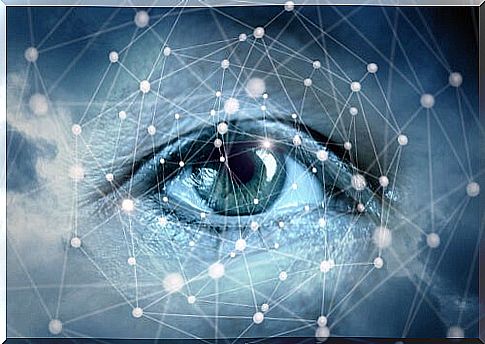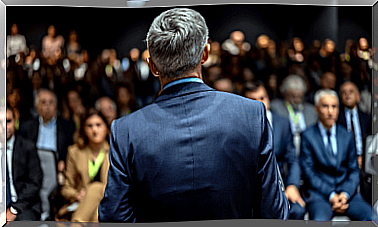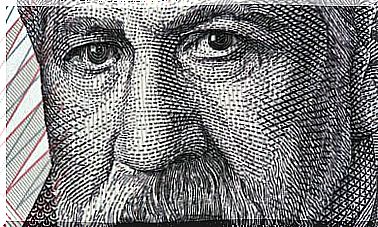How To Train Attention According To Daniel Goleman

To train attention according to Daniel Goleman we must focus on two dimensions that we could identify as the internal and the external. In a world so full of stimuli, pressures and demands, it indicates that we are neglecting that inner universe in which our feelings, fears and needs are. Likewise, we may also be forgetting to pay attention to those most important aspects of our environment.
Focus, attend, connect, discern, center, pay attention. .. All these processes are basic in our day to day to get more out of our reality. Let’s think about it for a moment. Dimensions such as stress, anxiety or depression are states in which our gaze becomes cloudy, thus confusing the details with the superfluous
When the brain keeps our senses alert, pending a thousand stimuli, while it deals with a thousand thoughts, sensations, emotions and worries, the world becomes chaotic. No one can be productive in such an environment; Furthermore, no one will be happy in a saturated microuniverse where not even a beam of light fits.
Daniel Goleman wrote Focus in 2013 with this very purpose: to teach us to train our attention to get out of this maze of chaos and suffering. In a world characterized by distraction, we are forced to refocus our gaze, to stay still and notice what is really worthwhile.

Keys to training attention according to Daniel Goleman
To train attention according to Daniel Goleman we must identify an important point. Attention, like most of our basic psychological processes, is like a muscle: it benefits from training.
If we exercise it daily with will and determination, we will gain in well-being. The key therefore is to be aware of that need. We say this for a very striking fact that is occurring frequently.
Our electronic devices are endowed with greater “intelligence” every day. Our mobiles and computers are gradually replacing many of those processes that we used to do for ourselves mentally.
We are so subject to these supports that our attention is linked almost exclusively to them and not to those scenarios that Daniel Goleman defines as the most important: our interior and our most significant social context.
Little by little, by neglecting these spheres but by “catching” ourselves with so much stimulation, information, pressure and data, we end up exhausted (infoxicated). What is known as a “cognitive overexertion” occurs. It is something similar to when we exert ourselves physically, we cannot give more of ourselves and we become weak.
Likewise, this exhaustion makes us more vulnerable to multiple adverse states: stress, anxiety … Let’s see what practices or strategies can help us train attention.
The takeover of your mind
William James is one of the most notable figures in the history of modern psychology . At the time he defined attention in a way that is as successful as it is inspiring: it is the taking possession by the mind in a clear and vivid way of one of several objects or chains of thoughts that are simultaneously possible.
- Attention is a tool of power. It is putting your gaze, will and concentration on a specific point. In turn, for that takeover, we need our emotions to be in harmony, in adequate calm.
- By understanding what the anatomy of care is, it will be easier for us to improve it.

The recipe for self-control
Attention training goes through the practice of self-control. We have so many stimuli around us and so many ideas, thoughts and sensations within us, that the mind gradually becomes more erratic, less focused.
Studies, such as the one carried out at the Pennsylvania State University (United States) by Dr. Heather A. Wadlinger, reveal that attention is directly related to emotions and, therefore, by taking care of the first dimension we will improve second. Now, how to do it?
According to Daniel Goleman, the recipe for self-control to train attention and regulate emotions passes through Mindfulness or Mindfulness. Thus, in his book The art of meditation , he teaches us how to do it and the benefits we obtain from the ancient exercise of meditation.
Indoor connection and outdoor connection
Whoever walks through their day to day disconnected from their internal reality ends up losing themselves, either sooner or later. Those who stop connecting with who really matters and with what is really valuable in their environment, lose quality of life and happiness.
- We must be able to listen to ourselves, not to leave for tomorrow what hurts, bothers or worries today.
- Likewise, it is vital that we become fully aware of ourselves at every moment, aware of what we need, what we deserve, what is happening inside us.
- On the other hand, one aspect that Daniel Goleman points out as essential for training attention is taking care of our empathy. With her we can connect better with others. With it we discover what is important in us and also in those around us.

Do you do what you like?
Do you like what you do in your day to day? This is one of the questions that Daniel Goleman asks us in his book Focus. Something that the famous author of Emotional Intelligence points out to us is that people spend much of our time bored or stressed.
The simple fact of not finding meaning or a purpose in our life, causes our attention to weaken. There is nothing motivating, there are no stimuli and that brightness in everyday life that pushes us to be more creative, to focus our eyes on what interests us loses vigor and strength …
Sometimes we have to give in to reality and discard the idea of imposing our preferences. You are not always lucky enough to have an exciting job or a highly stimulating routine. Now, the best thing is that there is a balance. We must have purposes, hobbies that we are passionate about, people that give energy and joy to our lives.
Purposes help us focus attention. Likewise, an emotional state that is favorable to us also favors a better management of attentional resources. These are undoubtedly small aspects in which we must reflect to improve our quality of life. Let’s do it, let’s train our attention, taking care not to lose our enthusiasm for who we are and have.









